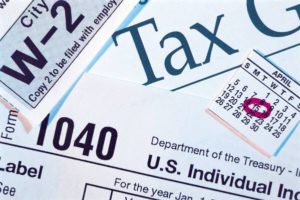 Today’s top story: What to do if a fair credit score cuts your credit card options. Also in the news: Should you use points and miles to book 2021 travel, should you purchase travel insurance for your summer vacation, and how often you should be checking your credit report.
Today’s top story: What to do if a fair credit score cuts your credit card options. Also in the news: Should you use points and miles to book 2021 travel, should you purchase travel insurance for your summer vacation, and how often you should be checking your credit report.
What to Do If a Fair Credit Score Cuts Your Credit Card Options
If you have only average credit, appealing credit cards aren’t as easy to come by. But you do have some choices.
Ask a Travel Nerd: Should I Use Points and Miles to Book 2021 Travel?
If you’ve been sitting on a pile of travel points, now might be a good time to start planning how to use them.
Do I Need Travel Insurance for My Summer Vacation?
If you’re making nonrefundable bookings, you might want to consider a travel insurance plan.
How Often Should You Be Checking Your Credit Report?
More often than you’d think.
 Today’s top story: 5 things agents wish people knew about insurance. Also in the news: 10 factors affecting COVID-era travel, how the new stimulus bill will affect unemployment, and how to spend your FSA before the grace period expires.
Today’s top story: 5 things agents wish people knew about insurance. Also in the news: 10 factors affecting COVID-era travel, how the new stimulus bill will affect unemployment, and how to spend your FSA before the grace period expires.  Today’s top story: Some student loan borrowers are 19 months closer to forgiveness. Also in the news: A new episode of the Smart Money podcast on pandemic debt and moving costs, buying life insurance for children, and when you’ll receive the next economic stimulus check.
Today’s top story: Some student loan borrowers are 19 months closer to forgiveness. Also in the news: A new episode of the Smart Money podcast on pandemic debt and moving costs, buying life insurance for children, and when you’ll receive the next economic stimulus check. Today’s top story: How to handle debt in an unequal recovery. Also in the news: 6 ways to save at the pump, worrying about the right thing with estate taxes, and 4 in 10 Americans are struggling financially one year after the pandemic began.
Today’s top story: How to handle debt in an unequal recovery. Also in the news: 6 ways to save at the pump, worrying about the right thing with estate taxes, and 4 in 10 Americans are struggling financially one year after the pandemic began.  Today’s top story: Worrying about the right thing with estate taxes. Also in the news: 3 ways to get socially distanced tax prep this year, 5 sneaky things COVID-19 might do to your tax bill, and new rules for self-employed and gig workers applying for PPP loans.
Today’s top story: Worrying about the right thing with estate taxes. Also in the news: 3 ways to get socially distanced tax prep this year, 5 sneaky things COVID-19 might do to your tax bill, and new rules for self-employed and gig workers applying for PPP loans. Today’s top story: Unwelcome income tax surprises may await those with debt. Also in the news: Knowing what’s in your EFT, 10 factors affecting COVID era travel in 2021, and why home buyers shouldn’t skip the inspection.
Today’s top story: Unwelcome income tax surprises may await those with debt. Also in the news: Knowing what’s in your EFT, 10 factors affecting COVID era travel in 2021, and why home buyers shouldn’t skip the inspection.  Today’s top story: What free college might actually look like. Also in the news: How to get rid of credit card debt by opening another card, how to fix credit report errors, and how to figure out the size of your next stimulus check.
Today’s top story: What free college might actually look like. Also in the news: How to get rid of credit card debt by opening another card, how to fix credit report errors, and how to figure out the size of your next stimulus check.